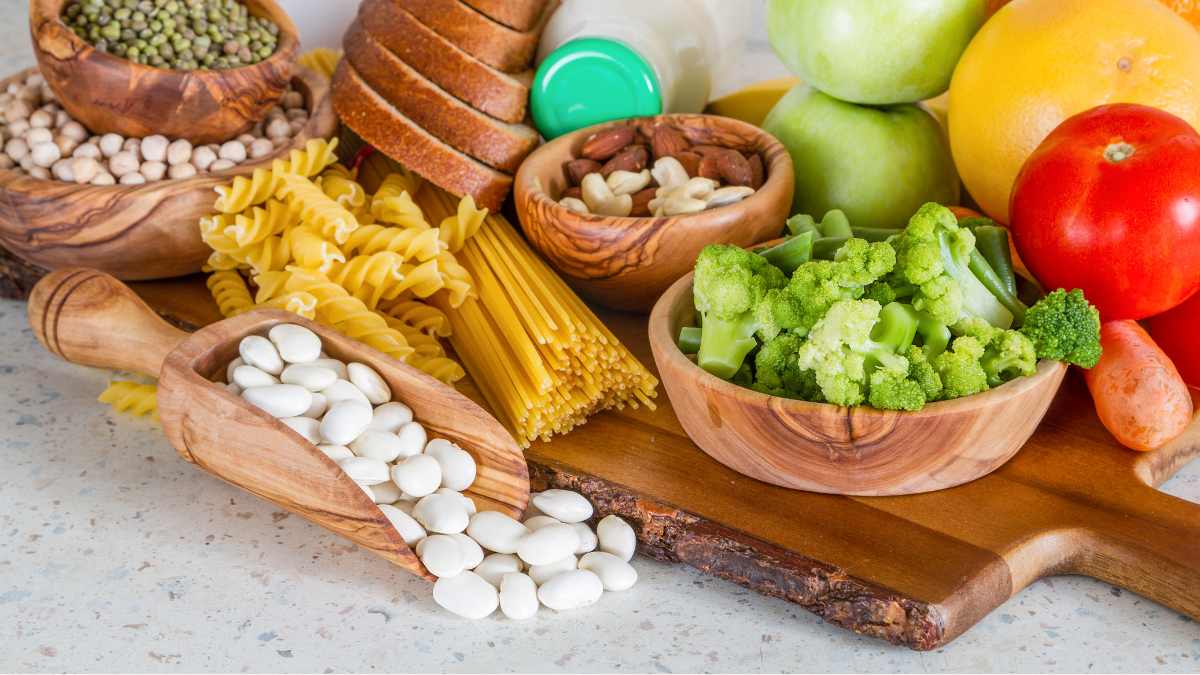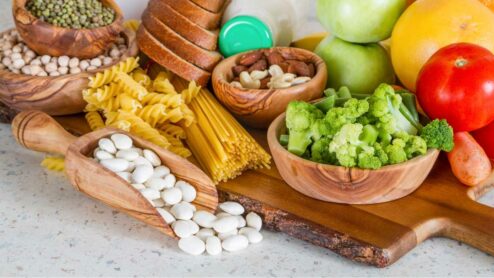Introduction: Vegetarianism, a dietary choice that excludes meat and sometimes other animal products, has gained popularity for its health benefits, ethical considerations, and environmental impact. However, a common concern is whether vegetarians are more prone to anemia, a condition characterized by a deficiency of red blood cells or hemoglobin. This article explores the relationship between vegetarianism and anemia, delving into the causes, risk factors, and preventive measures to ensure a balanced and healthy diet.
Introduction to Vegetarianism and Anemia
Vegetarianism encompasses a range of dietary practices, from lacto-ovo vegetarians who consume dairy and eggs to strict vegans who avoid all animal products. While these diets can provide numerous health benefits, they also require careful planning to avoid nutritional deficiencies. One such concern is anemia, particularly iron-deficiency anemia, which can arise from inadequate intake or absorption of essential nutrients.
Anemia is a condition where the body lacks sufficient healthy red blood cells to carry adequate oxygen to tissues, leading to fatigue and weakness. While anyone can develop anemia, vegetarians may be at a higher risk due to the absence of meat, a primary source of heme iron, which is more easily absorbed by the body compared to non-heme iron found in plant-based foods.
Understanding the potential link between vegetarianism and anemia is crucial for those who follow or are considering a vegetarian diet. By identifying the causes and symptoms of anemia and understanding the nutritional challenges of a vegetarian diet, individuals can take proactive steps to maintain their health.
This article aims to provide a comprehensive overview of anemia in the context of vegetarianism, offering insights into nutritional deficiencies, iron absorption differences, risk factors, and preventive measures to help vegetarians maintain optimal health.
Understanding Anemia: Causes and Symptoms
Anemia can result from various causes, including nutritional deficiencies, chronic diseases, and genetic conditions. The most common form, iron-deficiency anemia, occurs when the body lacks enough iron to produce hemoglobin, the protein in red blood cells that carries oxygen. Other types of anemia include vitamin B12 deficiency anemia and folate deficiency anemia, both of which can also be linked to dietary habits.
Symptoms of anemia can vary depending on its severity and underlying cause. Common symptoms include fatigue, weakness, pale or yellowish skin, irregular heartbeats, shortness of breath, dizziness, and cold hands and feet. In severe cases, anemia can lead to complications such as heart problems and delayed growth in children.
Iron-deficiency anemia is particularly relevant to vegetarians, as plant-based diets may not provide sufficient iron. Moreover, the body’s ability to absorb iron from plant sources is less efficient compared to animal sources. This makes it essential for vegetarians to be aware of their iron intake and ensure they consume enough iron-rich foods.
Vitamin B12 and folate deficiencies are also concerns for vegetarians, especially for vegans who do not consume any animal products. Vitamin B12 is primarily found in animal products, and a deficiency can lead to pernicious anemia, a condition where the body cannot produce enough healthy red blood cells. Folate, found in leafy greens and legumes, is crucial for red blood cell formation, and its deficiency can also contribute to anemia.
Nutritional Deficiencies in Vegetarian Diets
Vegetarian diets, while rich in fruits, vegetables, and whole grains, can sometimes lack certain nutrients critical for preventing anemia. Iron, vitamin B12, and folate are the most common nutrients of concern. Iron from plant sources, known as non-heme iron, is not as readily absorbed by the body as heme iron from animal sources. This can make it challenging for vegetarians to meet their daily iron requirements.
Vitamin B12 is another nutrient that vegetarians, especially vegans, need to monitor closely. Since B12 is predominantly found in animal products, vegetarians must seek alternative sources such as fortified foods or supplements to prevent deficiency. A lack of vitamin B12 can lead to neurological issues and megaloblastic anemia, where red blood cells are larger than normal and not fully developed.
Folate, or vitamin B9, is essential for DNA synthesis and red blood cell production. While it is abundant in plant-based foods like leafy greens, beans, and citrus fruits, vegetarians must ensure they consume enough to meet their daily needs. Folate deficiency can result in megaloblastic anemia, similar to vitamin B12 deficiency.
Other nutrients that support red blood cell production and overall health include vitamin C, which enhances iron absorption, and protein, which is vital for the formation of hemoglobin. Vegetarians should aim for a balanced diet that includes a variety of nutrient-dense foods to avoid deficiencies and maintain optimal health.
Iron Absorption: Plant-Based vs. Animal-Based Sources
Iron absorption varies significantly between plant-based and animal-based sources. Heme iron, found in meat, poultry, and fish, is absorbed more efficiently by the body, with an absorption rate of about 15-35%. In contrast, non-heme iron from plant sources such as beans, lentils, spinach, and fortified cereals has an absorption rate of 2-20%.
Several factors influence the absorption of non-heme iron. Phytates, found in whole grains and legumes, and polyphenols, present in tea and coffee, can inhibit iron absorption. Conversely, vitamin C and certain organic acids found in fruits and vegetables can enhance non-heme iron absorption. Therefore, vegetarians should combine iron-rich foods with vitamin C-rich foods to improve iron uptake.
Cooking methods can also affect iron absorption. For instance, cooking in cast iron pots can increase the iron content of food. Additionally, soaking and sprouting beans and grains can reduce phytate levels, thereby enhancing iron availability.
Understanding these factors is crucial for vegetarians to optimize their iron intake. By strategically planning meals and being mindful of food combinations, vegetarians can improve their iron absorption and reduce the risk of iron-deficiency anemia.
Risk Factors for Anemia Among Vegetarians
Several risk factors can increase the likelihood of anemia among vegetarians. One major factor is inadequate dietary intake of iron, vitamin B12, and folate. Without careful planning, vegetarians may struggle to consume sufficient amounts of these nutrients, leading to deficiencies over time.
Another risk factor is the reduced bioavailability of non-heme iron from plant sources. As mentioned earlier, non-heme iron is less efficiently absorbed by the body compared to heme iron. This makes it essential for vegetarians to consume higher amounts of iron-rich plant foods and enhance absorption through dietary strategies.
Certain life stages and conditions can also elevate the risk of anemia. Pregnant women, for example, have increased iron and folate needs to support fetal development. Vegetarians who are pregnant must pay extra attention to their nutrient intake to prevent anemia. Similarly, athletes and individuals with heavy menstrual bleeding may have higher iron requirements and should monitor their levels closely.
Lastly, underlying health conditions such as gastrointestinal disorders can impair nutrient absorption, further increasing the risk of anemia. Vegetarians with conditions like celiac disease or inflammatory bowel disease should work with healthcare professionals to manage their diet and ensure adequate nutrient intake.
Preventive Measures and Dietary Recommendations
To prevent anemia, vegetarians should focus on a well-balanced diet that includes a variety of nutrient-dense foods. Incorporating iron-rich plant foods such as lentils, chickpeas, tofu, quinoa, and dark leafy greens is essential. Pairing these foods with vitamin C-rich sources like citrus fruits, bell peppers, and tomatoes can enhance iron absorption.
Vitamin B12 is crucial for preventing anemia, and vegetarians should seek fortified foods such as plant-based milk, breakfast cereals, and nutritional yeast. For those unable to meet their B12 needs through diet alone, supplements are a viable option. Regular monitoring of B12 levels through blood tests can help ensure adequate intake.
Folate intake can be maintained by consuming plenty of leafy greens, legumes, nuts, and seeds. Including a variety of these foods in daily meals can help prevent folate deficiency and support red blood cell production.
In addition to dietary measures, vegetarians should consider regular health check-ups to monitor their nutrient levels. Working with a registered dietitian or healthcare provider can provide personalized guidance and help address any potential deficiencies. By taking these preventive measures, vegetarians can reduce the risk of anemia and maintain overall health.
Conclusion: While vegetarians may be at a higher risk for anemia due to potential nutritional deficiencies, careful dietary planning and awareness can mitigate this risk. By understanding the causes and symptoms of anemia, optimizing iron absorption, and ensuring adequate intake of critical nutrients like iron, vitamin B12, and folate, vegetarians can maintain a healthy and balanced diet. Regular monitoring and professional guidance can further support vegetarians in preventing anemia and achieving optimal health.
More Informations
-
Harvard T.H. Chan School of Public Health – Iron
- This resource provides comprehensive information on iron, including its sources, absorption, and the role it plays in the body.
-
National Institutes of Health – Vitamin B12
- A detailed fact sheet on vitamin B12, covering its functions, sources, recommended intake, and deficiency risks.
-
- An overview of anemia, including its causes, symptoms, risk factors, and treatment options.
-
Academy of Nutrition and Dietetics – Vegetarian Diets
- Information on vegetarian diets, including nutritional considerations and tips for maintaining a balanced diet.
-
World Health Organization – Micronutrient Deficiencies
- Insights into micronutrient deficiencies, particularly iron deficiency anemia, and global strategies for prevention and control.


